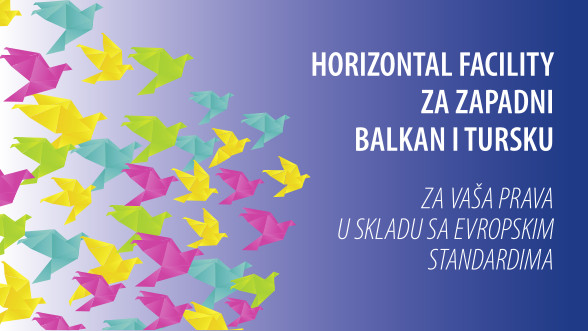The action “Preventing and combating trafficking in human beings in Serbia” held its fourth Steering Committee meeting with the participation of the National Anti-trafficking Co-ordinator, Mitar Đurašković, representatives of the Council of Europe, the European Union Delegation in Serbia, the line ministries and the State Labour Inspectorate, as well as civil society organisations involved in and benefiting from the activities.
Mitar Đurašković informed the committee on recent developments in the country and in particular the forthcoming adoption of anti-trafficking action plans and measures for 2021-2022, the increase in the number of identified victims and convictions for the crime of human trafficking for labour exploitation, which is a consequence of the increased capacities of the action’s beneficiaries, and the compensation awarded to trafficked victims. Đurašković stressed several issues deserving further attention such as the need to better consider gender specificities in anti-trafficking policies and measures, the need to better protect the rights of the victims including the right to compensation.
Maja Ilić, representing the Labour Inspectorate, emphasised that all labour inspectors in Serbia had undergone basic training and were equipped with tools to recognise signs of human trafficking and labour exploitation. Milja Krivokuća, representing the Ministry of Education, informed that a working group was recently established with the support of the action in order to revise the existing indicators for preliminary identification of children, potential victims of trafficking. Aleksandra Ljubojevic, from the Centre for Human Trafficking Victims’ Protection, shared that although the Centre has seen its capacities reduced due to the COVID-19 pandemic, it continue working on the professional development of its staff and co-operating with other anti-trafficking actors.
The action has also been supporting legal professionals (judges, prosecutors and students in law) in learning more about human trafficking and ensuring protection of the victims’ rights. It has awarded grants to civil society organisations to conduct awareness raising campaigns among the general public and some particularly vulnerable to exploitation categories (children, youth, construction workers) through social media and meetings in local communities to reach out as many people as possible.
The Steering Committee was given a short presentation of the 10th annual report of the Council of Europe’s Group of Experts on Action against Trafficking in Human Beings (GRETA). After the stocktaking of the activities and results since the last meeting in October 2020, the upcoming activities during 2021 were announced, and the Steering Committee expressed great satisfaction and support to the action for its relevance, reactivity and cross-sectoral involvement in countering human trafficking and protecting the victims’ rights in Serbia.
The action “Preventing and combating trafficking in human beings in Serbia” is a part of the joint European Union/Council programme “Horizontal Facility for the Western Balkans and Turkey 2019-2022”.


